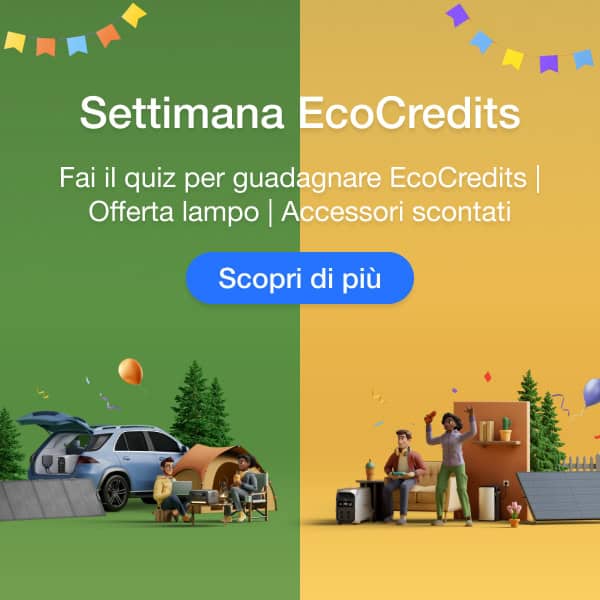Table of Contents
Perhaps one of the most significant decisions you’ll make when purchasing a home solar system is whether to opt for a grid-tied system, also known as an on-grid solar system or an off-grid system that grants you complete energy independence.
As the name implies, the primary difference between the two options is access to the larger electricity grid. Both options have benefits and drawbacks, so explore the differences between these choices to decide which is best for your UK home.
What Is an Off-Grid Solar System?
Off-grid solar power units are one type of renewable energy system that operates separately from the electrical grid, producing and storing all its generated energy rather than handing off excess or drawing extra power from the grid. It provides complete independence and breaks free of all reliance on larger energy systems.
Off-grid solar systems benefit an estimated 560 million people globally, with the majority in remote locations. For those living in areas without a reliable electric grid, off-grid solar allows them to operate a fully-powered home despite remoteness. However, full independence requires a robust system of equipment.
Off-grid systems require EcoFlow Solar Panels, whether fixed or EcoFlow Portable Solar Panels (for RV living or solar cabins, for example). They also need a robust battery storage unit, charge controllers, and an inverter to ensure the energy captured is usable.
Advantages of Off-Grid Solar Systems
- Completely Energy Independent: You create and store your energy on-site.
- Ideal for Remote Locations: Underdeveloped and remote areas can use off-grid systems to provide reliable, steady energy regardless of location in relation to energy infrastructure.
- On-Site Energy Storage: Electricity remains nearby for easy access and energy security.
- Avoid Outages: Battery backup storage provides continuous power even when the grid suffers an outage.
Disadvantages of Off-Grid Solar Systems
- More Expensive: Off-grid systems require more equipment and monetary investment.
- Battery Storage Required: You will need battery storage, such as EcoFlow Solar Generators, to deliver consistent energy without fluctuations.
- No Grid Support for Cloudy Days or Nights: There is no backup support at night or on cloudy days, so your storage surplus must be enough on its own.
- Battery Maintenance Required: The battery will require maintenance and may degrade rapidly with constant everyday use.
What Is an On-Grid Solar System?
A grid-tied solar system usually comprises similar components, perhaps without the battery storage. These systems are fixed in place using equipment such as EcoFlow Rigid Solar Panels, an inverter, and proper cables to connect them to the grid and the rest of your home. They cannot run when the grid isn’t running, so homeowners with on-grid solar systems will also feel grid power failures.
While this setup can be more limiting, it also provides external energy security, allowing you to draw from the grid when the sun isn’t shining without relying on on-site storage. Adaptability is one of the biggest advantages of this setup, which ensures an uninterrupted power supply regardless of how well your system produces solar power. If you live in an area without reliable sunlight, this will ensure you can power all of your appliances and devices, even in cloudy or dark moments.
Essentially, the grid serves as the energy reservoir, taking any excess energy off your hands and providing additional power as needed.
Advantages of On-Grid Solar Systems
- Less Expensive: If you need to save money on up-front costs, a grid-tied system will help keep costs low because it doesn’t require batteries or other equipment.
- Don’t Need to Cover 100% of Electricity Use: If your roof space won’t allow for a system that covers all of your electricity use or you don’t have the financing to install a large enough system, a grid-tied system still will enable you to pull electricity from its reserves as needed.
- Leverage Net Metering: Net metering programs, such as the Smart Export Guarantee (SEG) scheme, help offset the cost of any energy you use from the grid by “paying” you for excess energy your home’s solar system sends back to the central grid.
- Grid Acts as Storage: The grid becomes your cost-effective storage solution without on-site equipment.
- Financial Incentives: Some regions can leverage Renewable Energy Credits (RECs) to save more by selling the SRECs their system produces.
Disadvantages of On-Grid Solar Systems
- Outages if Grid Loses Power: The biggest drawback is that if the grid loses power, so do you. These setups do not provide any protection against grid failures.
- No Energy Independence: Because grid fluctuations and outages still impact you and you don’t have on-site energy storage, you don’t get independence from the grid.
What Are the Differences Between Off-Grid and On-Grid Solar Systems?
Four primary differences exist between off-grid and on-grid solar setups: how they access electricity, what they do with excess energy produced, the impact of grid outages, and how electricity is paid for.
Access to Electricity
With off-grid solar, your energy relies entirely on the sun and storage batteries. Without batteries to store extra energy, you’d only have power when the sun shines. Extra batteries allow you to draw additional energy even when the sun isn’t out. You only have the energy your batteries can store, so if you’re using more than you have stored, you may run out before the sun refills the reserves.
Grid-tied solar, on the other hand, provides steady access to unlimited electricity through the grid. The only exception is blackouts. However, your energy supply does not depend on how productive your system is or how robust your battery storage is. You can always pull supplemental energy from the grid as long as it’s available.
Excess Energy Production
When you’re off the electrical grid, your excess energy production is stored safely in your on-site battery reserves. Then, once the sun goes down or is obstructed by clouds, your equipment can draw from that excess energy to ensure you don’t lose power access.
Most systems can produce and store enough energy during the day to allow for consistent usage around the clock. However, weather can still be unpredictable. If you hit several cloudy days in a row, you may use up your reserved power and find yourself in the dark until the sun returns.
When you maintain a grid connection, any excess energy your equipment captures gets sent to the grid and may be used by others. But don’t worry, there’s a benefit to this loss as well. Net metering schemes will pay you back or credit your account for any excess energy the utility receives from you.
Grid Outages
Grid outages are never a concern for off-grid solar homeowners. Being completely independent of the widespread energy infrastructure means you’re immune to the interruptions that bad weather, accidents, or maintenance work requires. You won’t notice any changes to your electricity even if your grid-tied neighbours are experiencing an outage.
Unfortunately, grid-tied systems don’t have the same luck.
While having access to electricity whenever is helpful, the other side of the coin is that you won’t have access if the grid goes down. Unless your grid-tied system also has a battery backup, you’ll lose power when the grid goes out.
Electricity Billing
How you’re billed for electricity is also a major point of difference. On-grid systems will still come with a monthly electricity bill in the mail. However, you’ll notice minimal charges, perhaps only a connection fee, also known as a delivery charge or service fee.
This is the cost to maintain the connection to the grid, and it’s a flat rate that won’t be impacted by how much electricity you use. You may also see demand charges for any excess energy you draw at night or when the sun isn’t shining.
As for off-grid systems, if your PV system has no connection to the more extensive infrastructure, you won’t receive an electricity bill. However, you will pay much more to create your at-home system, and it may take a while to pay this off through financing plans.
What Is a Hybrid Solar System?
As you can see, each option has pros and cons. But what if you could combine the two to create a system with all of the pros from both with minimal cons? Enter the hybrid solar system. Hybrid systems are grid-tied but include battery storage systems to store excess or unused energy. While they are expensive due to the additional battery costs, they also provide insulation from grid outages and help prevent peak demand charges.
Frequently Asked Questions
What’s best for your home depends on what you value the most in a home solar system. Going off-grid may be a better choice if you care more about complete energy independence or live in a remote area. A grid-tied system will be well-suited if you want to save on your setup and draw excess energy from the grid.
Grid-tied solar systems will not work when the power is out if no backup battery storage is integrated into the system because the grid acts as the “storage” for any excess energy. However, a hybrid grid-tied system with batteries can allow these systems to work when the power is out as long as reserved power is available.
Final Thoughts
No one but you can determine whether an on-grid or off-grid solar system is best suited for your UK home. All you can do is weigh out the pros and cons of each, considering factors such as outage insulation with off-grid systems and excess energy availability with on-grid systems, to arrive at the best conclusion.
Perhaps the solution is a hybrid system, which uses a grid-tied system and backup storage like EcoFlow Solar Generators to avoid interruptions from blackouts.







